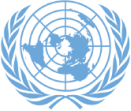UN issued Statements
2021
Monday, December 20, 2021 - 15:00
Wednesday, December 8, 2021 - 15:00
Monday, November 22, 2021 - 15:00
Wednesday, October 27, 2021 - 15:00
Tuesday, October 5, 2021 - 15:00
Wednesday, September 29, 2021 - 11:30
2020
Thursday, November 5, 2020 - 04:45
Tuesday, October 27, 2020 - 12:15
Friday, September 18, 2020 - 11:45


